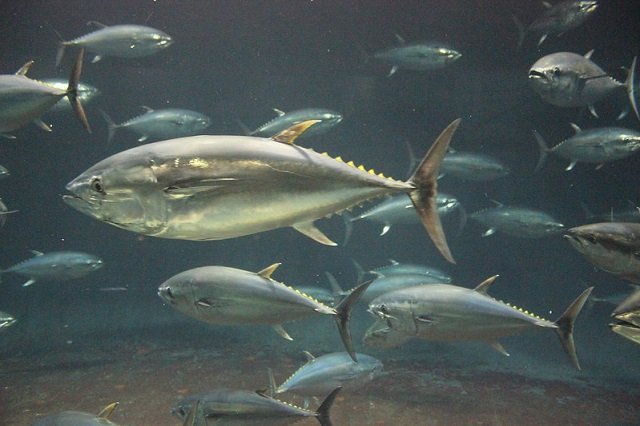
Global appetite for seafood is growing, but wild capture fisheries are reaching their limits. Aquaculture, the fastest-growing food production sector in the world, offers a solution to meet this increasing demand. Recognizing this potential, the World Bank Group (WBG) has launched a valuable resource: The Global Aquabusiness Investment Guide.
Driven by consumer preferences, technological advances, and increased investment, aquaculture is experiencing a boom. By 2027, it is expected to surpass capture fisheries as the main source of seafood. However, this rapid growth needs responsible management to ensure long-term success.
Investing in a Sustainable Future
The WBG’s AquaInvest platform aims to bridge this gap. Through the development of The Global Aquabusiness Investment Guide, they have created a roadmap for sustainable aquaculture investment. This guide empowers various stakeholders, including:
- Producers: Learn best practices for environmentally friendly fish and shellfish farming.
- Investors: Identify responsible investment opportunities in the aquaculture sector.
- Policymakers: Develop regulations that promote sustainable growth within the industry.
- Consumers: Gain confidence that the seafood they choose is responsibly produced.
A Guide for Everyone
The Global Aquabusiness Investment Guide is a comprehensive resource applicable to various aspects of aquaculture, including:
- Species: Freshwater fish, saltwater fish, shellfish, and more.
- Production Systems: Ponds, cages, recirculating systems, and integrated multi-trophic aquaculture (IMTA).
- Value Chain: From breeding and feed production to processing and marketing.
Key Components of the Guide:
- Part I: Provides an overview of the global aquaculture landscape, key development elements, and fundamental principles for sustainability.
- Part II: Outlines eight practical guiding principles for sustainable aquabusiness, focusing on the needs of the public and private sectors, particularly investment and growth strategies. These principles address the needs of the public and private sectors, focusing on:
- Private Sector: Guiding principles 1 to 7 equip businesses with strategies to access financing and navigate the investment landscape. These guiding principles include: defining scope, assessing the business environment, social responsibility practices, environmental sustainability practices, climate change adaptation and mitigation, biosecurity and aquatic health, and combating food loss and waste.
- Public Sector: Guiding Principle 8 empowers governments and supporting actors to create an environment that fosters responsible investment and growth in aquaculture.
Key Principles for Sustainable Success
The guide outlines eight core principles that serve as the foundation for responsible aquaculture development. These principles address critical areas such as:
- Building Strong Value Chains: Optimize production and distribution for maximum efficiency and profitability.
- Ensuring Responsible Environmental Practices: Minimize environmental impact through responsible waste management and water use.
- Promoting Social Responsibility: Advocate for fair labor practices and support local communities.
- Encouraging Innovation: Adopt new technologies to improve efficiency and sustainability.
A Living Document for a Dynamic Industry
The Global Aquabusiness Investment Guide is a dynamic resource that constantly evolves as the industry grows. Periodically updated with new insights and best practices, it serves as a valuable tool for anyone navigating the exciting world of sustainable aquaculture.
All information is published on the AquaInvest Platform, which aims to share knowledge, tools, and best aquaculture practices. This platform periodically provides updated information.
Conclusion
This guide provides clear instructions and best practices for those involved in the investment, expansion, and development of aquaculture. The guide offers valuable information for both private companies and government entities, promoting responsible investment and fostering industry growth.
Stay Always Informed
Join our communities to instantly receive the most important news, reports, and analysis from the aquaculture industry.
By adopting the principles outlined in The Global Aquabusiness Investment Guide, stakeholders across the aquaculture industry can ensure a prosperous future for this vital food source. This ensures economic prosperity, social responsibility, and environmental sustainability while meeting the growing demand for healthy and delicious seafood.
The preparation of the Guide was funded by PROBLUE, a World Bank-managed fund that supports the sustainable and integrated development of marine ecosystems and coastal resources in the oceans.
Reference (open access)
World Bank. The Global Acquabusiness Investment Guide: A Living Framework to Guide Sustainable Development in the World’s Fastest Growing Food Sector – Summer 2024 (English). Washington, D.C. : World Bank Group.
Editor at the digital magazine AquaHoy. He holds a degree in Aquaculture Biology from the National University of Santa (UNS) and a Master’s degree in Science and Innovation Management from the Polytechnic University of Valencia, with postgraduate diplomas in Business Innovation and Innovation Management. He possesses extensive experience in the aquaculture and fisheries sector, having led the Fisheries Innovation Unit of the National Program for Innovation in Fisheries and Aquaculture (PNIPA). He has served as a senior consultant in technology watch, an innovation project formulator and advisor, and a lecturer at UNS. He is a member of the Peruvian College of Biologists and was recognized by the World Aquaculture Society (WAS) in 2016 for his contribution to aquaculture.







